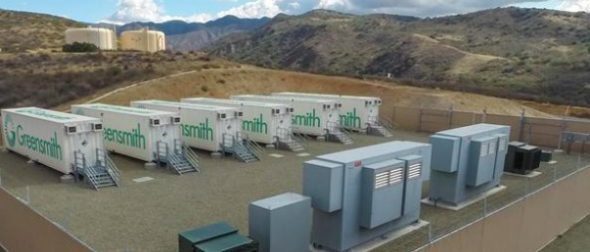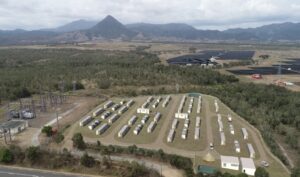The Senate on Wednesday passed – unanimously – an Australian Greens motion calling for a change in the wholesale electricity market rules to a 5 minute settlement period and expressing its support for battery storage.
The motion was put forward by South Australian Senator Sarah Hanson-Young and, to the surprise of the Greens, passed unanimously with no opposition from the Coalition.
It doesn’t have any legal impact, but the fact that the government did not vote against it is being seen as a clear signal to the Australian Energy Market Commission that the government (along with the other parties) want this change to take place.
The changes to the energy market rules have been proposed by zinc refiner Sun Metals, and supported by a host of other users, market experts and battery storage providers such as Tesla and Zen Energy, to address so-called gaming of prices on the wholesale market.
They argue that the current 30 minute settlement period allows fossil fuel companies to manipulate capacity availability to push up prices, and the rules do not favour fast response technology such as storage and demand management.
The fossil fuel generators have been fighting the proposed rule changes, arguing that this is the way they make their money, and threatening to mothball their gas plants if the changes are made, risking further shortages.
The AEMC, after nearly ditching the proposal, and then twice delaying a ruling, is expected to release its thoughts on the proposal on April 11, before a draft rule is released in July.
It could be the biggest shift in the Australian energy industry in decades, and appears to have the support of AEMO’s new boss Audrey Zibelman, who favours fast reacting technologies and demand management to say to ‘Hey there, we don’t really need you,” to the builders of peaking plants used just a few hours a year.
However, AEMO chairman Tony Marxsen says while he favours the 5-minute rule change, he was keen for it to be introduced over a period of a few years because it “will affect the business model of those investing in gas peakers”.
The problem with that idea, energy analysts say, is that no-one actually is looking to invest in gas peakers – apart from the South Australian government which wants one as an emergency back-up.
Energy analysts say virtually all existing gas peakers are owned by retail companies – gentailers – who use peakers to internally hedge their retail exposure. Most have very little residual merchant exposure.
“The only other purpose of peaking plant then is to drive up wholesale spot prices, and forward curve, and in time, retail prices and gentailers margins. It’s all to do with rewarding incumbency then.”
Senator Hanson-Young told RenewEconomy that the market rules are clearly broken and they need to be fixed.
“Batteries and energy storage have an important role to play in the future stability of our energy supply, but until now they’ve been locked out by antiquated and unfair rules.
“The current market rules ignore the value that instantaneous power delivery from batteries represents and the big fossil fuel companies want to keep it that way.
“There’s an oligopoly in Australia’s energy market right now and the best way to change that is to fix these rules. No one is asking for handouts when it comes to batteries and storage, all they’re asking for is a level playing field.
The Greens motion in full said:
The Senate:
+ Acknowledges the recent electricity supply shortages in South Australia that resulted in rolling blackouts, even though generation capacity existed in gas power plants that lay idle;
+ Recognises the potential for batteries and energy storage to both stabilise energy supply and drive down costs in South Australia; and
+ Calls on the government to fix the National Energy Market’s rules and level the playing field by implementing 5-minute settlement periods.
The Coalition responded by underlying its support for energy storage, including ARENA funding for a virtual power plant in Adelaide, and for feasibility studies for pumped hydro in South Australia and the Snowy Hydro.
The biggest battery storage plant, however, will be supported by South Australia, which has called for expressions of interest for a 100MW battery storage plant by Friday.
It had advised it was seeking a configuration of 100MW/100MWh – or one hour of storage – but has since updated after it was pointed out that this may restrict some battery storage technologies.
It says it is now open to varying propose battery sizing and power to energy set-ups and is using the EOI to get some ideas of potential pricing and configuration.
It has also opened a two-week EOI process for 250MW of peaking gas plant, which it says will only be used as an emergency alternative to load shedding, and to provide system security.









